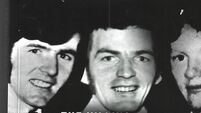A guide to surviving dark days of winter

Make time for friends and plan something to look forward to this winter. iStock
The clocks have gone back, and winter has arrived with a bang. Days are interminably damp and grey. Evenings are dark and wet and cold.
By December, the sun won’t rise until 8.30am and will set again by 4.30pm, making it very easy to turn my back on the swim bag as I head for the couch and remote control. And I am not alone.
Many of us get a dose of winter blues, propelling us indoors as we ditch our healthy habits, cancel social outings and physical pursuits; while we console ourselves with binge watching Netflix, indulging in sugary treats, and closing the door on friends.
This year, the goal is to find a rhythm that allows you to stay in control. Here’s the steps I take to keep me moving, socialising, and making the best of dark winter days and nights.
Get up early: Sleep has been under-recognised as a key determinant of health and longevity. Starting off the day with a good night’s sleep sets up you for almost anything. You eat better, work better, handle stress better, are more motivated to exercise, and more inclined to socialise. After a poor night’s sleep, many of us spend the day willing it to be over.
The best formula for quality sleep is to set a good routine around going to bed and rising at more or less the same time every day, as often as you can.
Resistance exercises: We all know walking and cycling are good for your heart and lungs. But increasingly we are learning that doing exercises specifically to build muscle is essential, particularly as we get older.
One of the best ways to do this is to do more resistance exercises like press ups or squats- that don’t need equipment and use your own body weight to make muscles work harder.
First thing in the morning is a good a time as any to do some press-ups. The number you can do seems to be a good predictor of heart health while squats seem to be particularly effective at stimulating blood flow to the hippocampus – the part of the brain responsible for learning and memory. Squats also stimulate the release of a hormone called brain-derived neurotrophic factor which encourages the growth of new brain cells and connections. What Michael Mosley referred to as “fertiliser for the brain”.
Have a cold shower: The first time I tried this it was a shock to the system. It gets easier with practice. The idea is regular immersion in cold or ice water can combat stress, boost your mood, improve your cardiovascular health and bolster your immune system. It will certainly wake you up and leave you bright- eyed and bushy- tailed at the start of grey day.
Brush your teeth while standing on one leg: We start to lose our ability to balance when we enter our forties and fifties, and don’t really think about it until we topple over. But the good news is that again, with practice, we can regain much of our ability to balance. And because balance involves a remarkable feat of co-ordination between muscles, inner ear and eyes, it is a great predictor of healthy ageing.
The easiest way to work on your balance is by just standing on one leg as your brush your teeth or boil the kettle (be careful). Integrating this simple step into your daily routine could have a life-changing effect with fewer potential falls and less chance of fractures as you boost your core strength, posture and co-ordination.
Drink coffee but no more than 3 cups: Not only do I love the taste of it, and it wakes me up before my exercises and cold shower, but coffee also provides a lot of health benefits.
It is bursting with flavonoids and antioxidants called polyphenols - compounds known to be anti-inflammatory and promote both brain and heart health. There is evidence that coffee drinkers have lower rates of heart disease, stroke, cancer and dementia but stick to three cups a day, preferably before lunch.
Breakfast like a king: Emerging evidence suggests that the old adage: “Eat breakfast like a king, lunch like a prince, and dine like a pauper”, may actually be rooted in science.
Porridge with milk and natural yogurt and a sprinkling of nuts and seeds is protein-rich, bursting with health-promoting flavonoids and polyphenols and full of fibre, you cannot do better.
Get some early morning light: I think if I drove the same 4km to work every day, I would be asleep until mid-morning. Heading out first thing means I not only get exercise benefits, I also get exposure to natural light.
Light levels outside are about ten times greater than inside, even on a grey day. When sensors at the back of your eyes are activated by light, it sends messages to your brain to stop producing ‘the hormone of darkness’, melatonin. There is evidence that the earlier you activate your body clock by a brisk walk outdoors, the greater the impact on your quality and quantity of sleep. It is also great for lessening stress, raising serotonin and dopamine, and boosting mood.
Make time for friends: It’s so easy to give in to the wind and rain on winter evenings. I am in a choir as well as a book club and usually love these outings when the evenings are bright. Getting out on wet winter evenings is much more of a challenge when the couch and the TV beckons.
I’m not the greatest for staying in touch either and often wait until the invitation for coffee or lunch rather than sending the invite myself or being the first to pick up the phone.
Social contacts are vital for wellbeing, improving mood, boosting brain health and lowering the risk of chronic disease. Strong social connections can help to reduce stress, anxiety and low mood and provide vital support when things get tough.
As the long winter months loom, regular arrangements to keep in touch with family and friends are vital and that catch- up may be just as important to them as it is to you. Engaging in community activities or joining local groups can be transformative for mental wellbeing as you make new contacts and build friendships.
Have something to look forward to: I try to make plans to do the things I really love. It might be lunch or dinner with old friends, movie nights, even a holiday in the sun in the middle of winter.
Psychologist, Maureen Gaffney is a huge advocate for holidays. The planning and anticipation start weeks or months before. The holiday itself is a time to relax and recharge, lowering blood pressure and stress hormones, while the impact of the holiday can last for weeks to months afterwards.
Irish winters can be brutal, but with a bit of planning and a few rituals in place, we can all get through it relatively unscathed, knowing that spring will finally, eventually emerge.







 App?
App?




